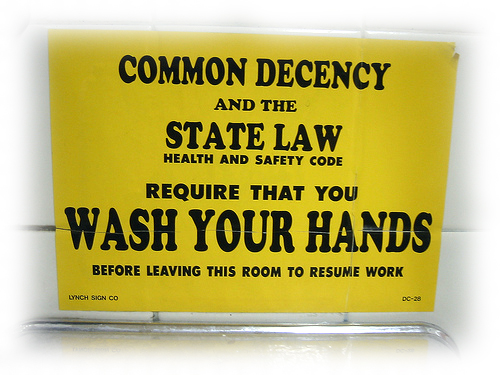Posts Tagged ‘law of demand’
Picture a Coke machine next to a Pepsi machine. Let’s say a Coke and Pepsi each cost $1 today. Tomorrow, the price of Coke jumps up to $2. What do you expect will happen? Two things should come to mind. First, fewer people will buy Coke. It’s more expensive. This is the law of demand. The second effect is that some people will now switch from Coke to Pepsi. They are substitutes–when the price of one increases, people buy more of the other. Here are some interesting examples:
Certain nationalities have a relatively harder time gaining American citizenship through immigration and/or naturalization. We’d expect to see an increase in demand for substitutes among these groups. The closest substitute for naturalization is marriage to a U.S. citizen. U.S. immigration policy not only shapes the international marriage market, it does so with national bias.
 In times of economic trouble, finding work can be tedious. It requires dedication, persistence, and patience among other things. When job search costs are high, we expect to see an increase in demand for substitutes. The three that come to mind are government assistance, crime, and civil lawsuits.
In times of economic trouble, finding work can be tedious. It requires dedication, persistence, and patience among other things. When job search costs are high, we expect to see an increase in demand for substitutes. The three that come to mind are government assistance, crime, and civil lawsuits.
Huffing is the act of getting high by inhaling toxic fumes. Minor headlines revolve around fears of epidemics among teens. How can we reduce the amount of huffing? Increase the availability of substitutes. Keep some beer in the garage next to the paint. Fewer kids will choose a chemical high when alcohol becomes more available.
“My boss can’t find anything without me.”
“He’s a slob–his mother constantly cleaned up after him.”
“I can’t spell–I’ve got spell-check.”
Simply put, economics is nothing more than the study of decision making. Whether we’re car shopping, eating out, or contemplating stealing, part of us asks “What will this really cost me?” This implies that weaker punishments lead to more crime, but what about incentives involved in everyday bad behavior?
 Housekeepers reduce the cost of untidiness; so those who use these services are messier than they would be without them. Similarly, spell-check reduces the cost of misspellings; while administrative assistants maintain the incentive for the big boss to remain unorganized. The stakes can get larger, however.
Housekeepers reduce the cost of untidiness; so those who use these services are messier than they would be without them. Similarly, spell-check reduces the cost of misspellings; while administrative assistants maintain the incentive for the big boss to remain unorganized. The stakes can get larger, however.
In The Armchair Economist, Steven Landsburg suggests that safety regulations (seatbelt laws, mandatory air bags, etc.) increase the number of accidents. He argues that the cost of driving carelessly is lowered in terms of expected injury or death. Likewise, competent nurses diminish the costs of doctors making mistakes, leading to more errors. Birth control reduces the cost of unprotected sex, thereby increasing its frequency.
What about those who never had the incentive to learn how to be good drivers, competent doctors, or responsible sexual partners? Much like spell-check users on a handwritten exam, when these individuals leave their coddled environment, they cannot simply switch to demonstrating good behavior because they never learned good habits in the first place. Once they lose their safety nets, the potential damage they can inflict greatly increases.

 machines purposely cost more to users by requiring more time per sheet. Because of the higher price, the restroom operator knows that fewer towels will be taken per wash. As fewer towels are consumed, less restocking occurs, and eventually the room operates at a lower cost.
machines purposely cost more to users by requiring more time per sheet. Because of the higher price, the restroom operator knows that fewer towels will be taken per wash. As fewer towels are consumed, less restocking occurs, and eventually the room operates at a lower cost.